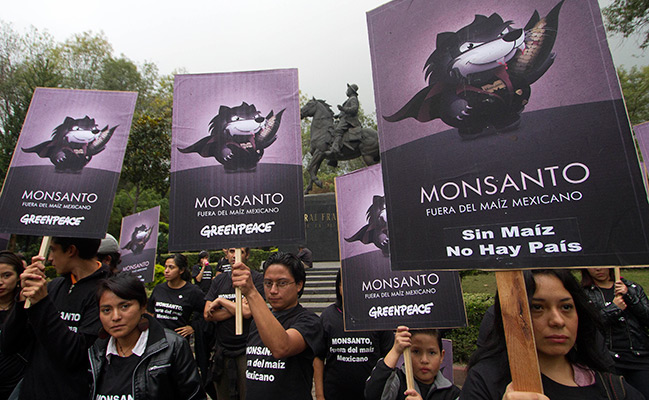Anti-GM food activist admits he was wrong
As one of the leading campaigners against genetically modified food changes his mind on its dangers, could the tide be turning its favour?

Since the mid-90’s a war has been waged on proponents of genetically modified foods by campaigners concerned about their environmental impact. One of the leading voices was British environmentalist Mark Lynas, who tirelessly lead the anti-GM movement and caused governments around the world to put strong restrictions on research into such foods.
Now, however, Lynas has shockingly admitted the errors of his ways and come out in favour of the scientists who had developed these types of foods that many believe could aid third world famine and bring down global food prices.
In an address to the Oxford Farming Conference last week, Lynas said: “I want to start with some apologies. For the record, here and upfront, I apologise for having spent several years ripping up GM crops. I am also sorry that I helped to start the anti-GM movement back in the mid 1990s, and that I thereby assisted in demonising an important technological option which can be used to benefit the environment.”
Many of the arguments that he and other campaigners had used centred around the impact GM crops had on agriculture, and led to restrictions on farming that caused a focus on more traditional and supposedly less efficient farming practices. Lynas says this was wrong, and deprived many of decent diets: “As an environmentalist, and someone who believes that everyone in this world has a right to a healthy and nutritious diet of their choosing, I could not have chosen a more counter-productive path. I now regret it completely.”
The cause of his u-turn, Lynas added, was simple: “I discovered science, and in the process I hope I became a better environmentalist.”
The significance of his change in attitude towards GM foods is great, as many proponents hope that relaxed regulations on GM crops in the third world could allow famine-ridden countries in Africa and Asia to properly feed their citizens. The organic food movement in Western countries has also been on the wane in recent years, with concerns over prices. If GM gets a revival in favour, food prices could soon dramatically fall.













